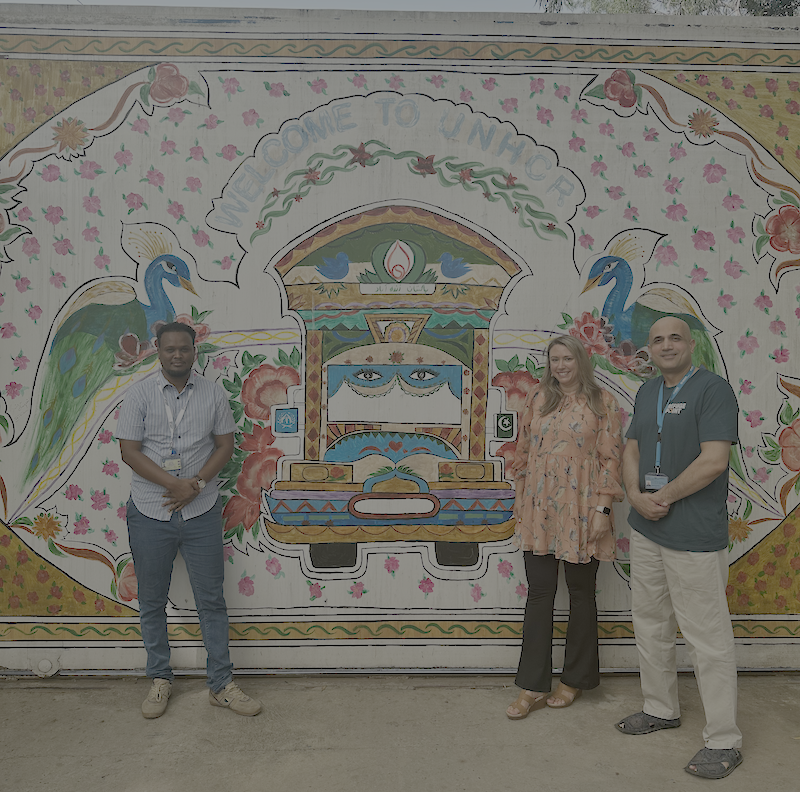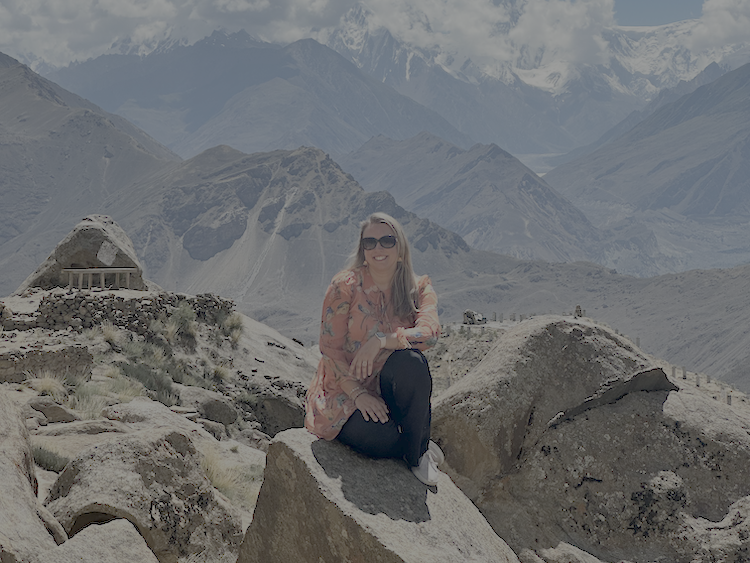Pakistan hosts one of the world’s largest refugee populations. As of October 2023, the UN Refugee Agency (UNHCR) reported there were 3.7M Afghans in Pakistan, including more than 700,000 Afghans who fled after the August 2021 Taliban takeover. More than 75% are women, children, or older adults. As with all refugees, there are three possible long-term solutions for Afghan refugees refugees in Pakistan:
As part of our ongoing collaboration with the United Nations High Commissioner for Refugees (UNHCR), RefugePoint deployed two Experts to Pakistan between 2021 and 2024 to support the resettlement of Afghan refugees to the U.S. and other countries. Their primary responsibility was to conduct interviews with refugees who had fled to Pakistan to better understand what they had experienced and complete critically important documentation to help them find a permanent home.*
In 2023, our Chief Development Officer, Sarah Hidey, had the opportunity to meet with two Resettlement Experts, Samow and Muhammad, in Islamabad, Pakistan, to learn more about their work and the impact they have had on the lives of Afghan refugees living in Pakistan.

Samow (RefugePoint Expert), Sarah (Chief Development Officer, RefugePoint), and Muhammad (RefugePoint Expert) at the UNHCR Office in Islamabad, Pakistan.
Samow: The refugees here are urban refugees, and they normally live in Islamabad, Rawalpindi, or the neighboring locations around those two cities. Mostly, the refugees here lack documentation: they come with visas, but when those visas expire, they are not renewed. So this leaves them unable to rent a house, go to a hospital, or even get money from a job because a valid visa is required for that. There is also the threat of deportation. So, these are the challenges they go through.
Samow: We come into the office in the morning at eight, and then we receive refugees, who come for interviews. The interviews can take many hours— listening to their stories, why they left their home country, and the challenges they’re facing in Pakistan. Thereafter, we write up our assessments to determine their status, and then we may submit them for resettlement consideration.
Muhammad: It’s a long interview. An average interview can last three to four hours, sometimes even longer. Sometimes you have to come back the next day, depending on the case. After we’re done with the interviews, we go back to our workstations, and then we start writing up the case summary because we have to write up the resettlement registration forms, fill those out, and fill in the refugee status determination assessment sheets. It’s a lot of paperwork. So, we’re interviewing, and then we’re doing the paperwork. When we get the word that they’ve been cleared and accepted for resettlement, and they will be resettled, it’s awesome—it just feels great!
Muhammad: The work we do is extremely rewarding because, at the end of the day, we are helping one of the most vulnerable populations around the world. We’re helping them resettle and get a better life. We’re giving them hope. And so the reward is tremendous: the feeling of satisfaction when you actually help a family in need. A family that suffered a lot of persecution, suffered a lot of trauma, violence, all kinds of brutalities— when they are cleared for travel to resettle to a new country, it’s very gratifying and satisfactory.
Samow: What is most inspiring about this job is the tangible difference we make in the lives of refugees or persons who are forcibly displaced from their countries of origin.
RefugePoint is committed to the protection of Afghan refugees worldwide. In the United States, we helped create The Sponsor Circle Program for Afghans, which built the framework for the U.S. new private sponsorship program, The Welcome Corps. As part of the Welcome Corps, U.S. citizens can sponsor refugees in their own communities, helping them integrate into American life and rebuild their lives in safety.

Stay in the know about our work with refugees: get refugee stories, events, RefugePoint news, and more delivered right to your inbox.
By subscribing you agree to with our Privacy Policy & provide consent to receive updates from Refuge Point.